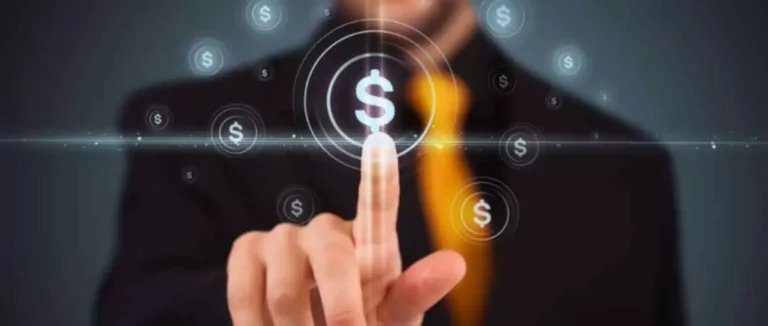For individuals in search of management, transparency, and security, dApps symbolize a groundbreaking improvement in software and the web as a whole. A decentralized software, or dApp, is a type of software software that operates on a decentralized community, sometimes a blockchain. At its core, a decentralized software (dApp) is a kind of software software that operates on a decentralized blockchain network rather than on a single, centralized server. Unlike conventional applications that store information in centralized databases, dApps use blockchain technology to distribute knowledge across a network of nodes, enhancing security and resilience. This signifies that instead of a single company or group controlling user knowledge and interactions, management is distributed among all members on the network. A decentralized app, unlike a centralized app, is not owned by a single company.
A dApp is an open-source software application that operates on a peer-to-peer network, typically a blockchain. In a blockchain ecosystem, a dApp can be oversimplified as a smart contract with a human-readable UI. DApps are stored on a blockchain system, and their execution also takes place on such a system, which is mostly Ethereum.
Before understanding how a dApp works, it’s crucial to grasp how a blockchain community works. Usually free of direct transaction charges; costs are borne by the service provider. Data is saved on the blockchain or decentralized storage methods (e.g., IPFS). As of June 2022, the majority of DApps function on the Ethereum community, identified for its sturdy infrastructure and versatility.
Use Circumstances Of Defi Tokens
DApps, short for Decentralized Applications, have turn out to be a significant decentralized applications examples development within the expertise landscape. In Contrast To traditional centralized functions, DApps make the most of blockchain expertise to provide decentralized, transparent, and safe options. Nevertheless, with dApps, social media may be decentralized, the place customers personal their knowledge and can control how it is used.
What Are Decentralized Apps (dapps) And The Way Do They Work?
The content posted on these platforms is also Know your customer (KYC) saved on their servers, giving them complete control over the person knowledge. Decentralized functions, or dApps, are software applications that run on a blockchain or peer-to-peer (P2P) community of computers as a substitute of on a single laptop. Quite than working beneath the control of a single authority, dApps are spread throughout the network to be collectively managed by its customers.

However, as extra updates become out there, these points are anticipated to be overcome. One of its most vital advantages of dApps is that they’re absolutely decentralized, not requiring any third get together to exercise any control. This is particularly true for purposes requiring a high fault tolerance stage. A blockchain is a network that allows all information to be shared with its friends to retailer data chronologically in blocks.
That means every node in the system holds a backup of the dApp, and if one participant corrupts the data, the other members will know. Every CryptoKitty is unique, owned by the person, and validated via the blockchain. Like different forms of tradeable property, its worth can recognize or depreciate based available on the market. CryptoKitties are thought of “crypto collectibles” as a result of every digital pet is one-of-a-kind and verified on a blockchain.
- The utility software for a centralized app resides on one or more servers controlled by the owner.
- Everex positions itself as a financial inclusion Blockchain development company.
- Customers have interaction in transactions directly with one another quite than counting on a central authority to facilitate them.
- Accordingly, they provide customers a say in how the app grows and develops.
- Sensible contracts streamline processes, reduce prices, and create trustless interactions inside dApps, making certain that guidelines are adopted precisely and constantly.
In the case of Ethereum, these transactions are paid for within the form of “gasoline” fees, which may differ depending on the current demand for transaction verification. In most instances, you’d purchase Ethereum and then use it to pay for the transactions on the blockchain the dApp needs to carry out so that it may possibly do its job. When you utilize a service like Google Docs or Microsoft 365, the price of providing the service is paid either by way of promoting or a direct subscription payment from you, the consumer. While dApps aren’t underneath the management or possession of a single entity, the computational power and storage still must be paid for. So dApps still have the identical limitations as transacting with a centralized app that supports cryptocurrency payments.
Fxguys’ $4m Presale Catches The Eye Of Chainlink Whales
Nevertheless, challenges related to scalability and user adoption need to be addressed. Overall, DApps have the potential to revolutionize numerous industries and proceed to evolve within the pursuit of decentralized options. Unlike centralized applications that depend on a single server or entity for operation, DApps function on distributed peer-to-peer networks. These systems are composed of quite a few nodes, or computational models, each retaining a reproduction of the blockchain whereas concurrently confirming transactional operations.

This makes dApps more secure than conventional apps and implies that they will also supply increased privateness for users, as they do not need to share personal information with a central authority. DApps work by permitting customers to work together with sensible contracts deployed on a blockchain. Users provoke transactions via the dApp’s frontend interface, which then communicates with the blockchain through a Web3 provider like MetaMask. The good contracts execute the logic and report the results on the blockchain, making certain transparency and immutability.
We do not embody the universe of corporations or financial offers that could be available https://www.xcritical.com/ to you. Accordingly, they give users a say in how the app grows and develops. This often requires holding the dApps’ governance tokens, which give users voting rights. This makes them pretty much inconceivable to block—while also guaranteeing they’re accessible 24/7… it would not matter what. Making them good for essential functions like well being and personal finance apps.
Other customers experience the exact opposite problem… They don’t have permission to make use of the apps they need as a end result of native restrictions, censorship, and monopolies. It can be a irritating experience to haven’t any alternative however to use an app you’re not happy with. You could possibly be caught with a contract or they might make it terribly difficult emigrate your settings/data etc to a different app. But despite the utility and profit that many of those apps present, there is a heap of downsides that may make them less desirable than they first seem. After all, they’re generally owned and operated by firms which may not necessarily have your greatest interests in mind.